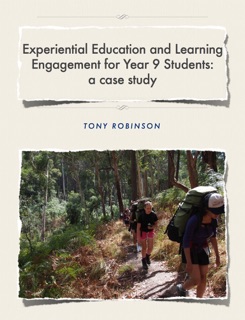Many aspects of experiential education (EE) are well researched but there is scant research looking into the relationship between EE and learning engagement. This research is a case study of a wide ranging EE program for year nine students and the correlation found from self-reported data through participation in the program and learning engagement.
The theoretical interpretive framework (TIF) used in this study was derived from recent learning engagement literature and features three dimensions and eight axes allowing for the interpretation of primary and secondary sources of collected data. This study lies within the interpretive paradigm with data collected through a number of methods from six different sources, to allow for the confirmation of the study findings. Secondary data sources of existing school records including absentee data, interviews with year nine students of previous years and written work students had submitted describing their recollections of the EE program experiences. Primary data were gathered through questionnaires for students who had participated in the EE program, teachers who had worked with, or were working with, students who had participated in the program, and a focus group of current year nine students.
Some significant findings include five broad themes relating to personal development, transfer of learning, relationships, metacognition and experiential learning, with many respondents reporting positive improvement in each of these areas. Besides these, learning engagement in the affective, behavioural and cognitive dimensions is reported on with the TIF a useful instrument to organise and report the study findings.













